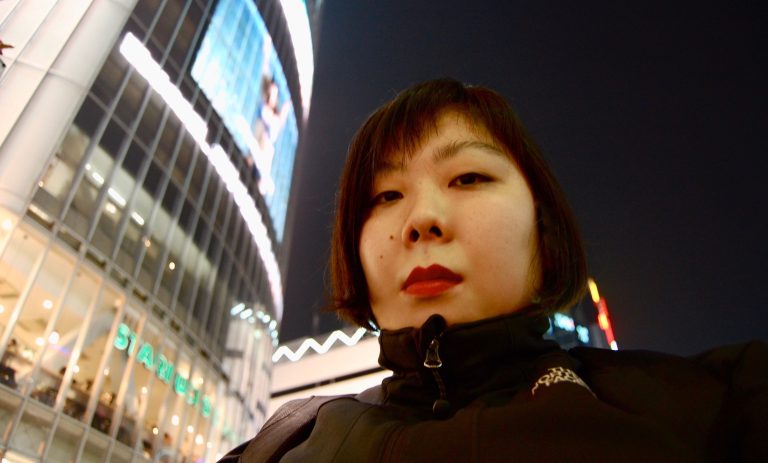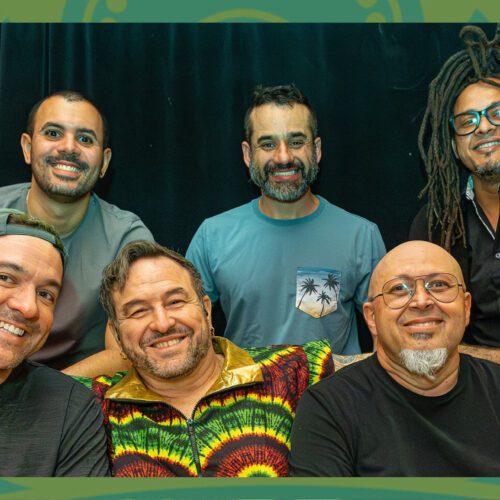Additional Information
Hailing from Chicago, Hiroko Yamamura has been immersed in electronic dance music since her teenage years. First as a raver, then as a DJ. After a long hiatus, she returned to the scene in a major way a few years ago, encouraged by her long-time friend Seth Troxler. An international ambassador for Chicago techno and house, she will share her musical legacy with Igloofest crowds at an “Après-ski” party at the PHI Center for the opening weekend of the festival.
PAN M 360 : I tried to find some information about you on the internet, and you are kind of mysterious. Can you tell me more about your background ?
Hiroko Yamamura : Sure. So I’ve been DJing and producing for a long time since high school. I don’t want to say exactly how old I am (laughs) but yes, I’ve been very much a raver. I used to go to parties in the late 1990’s early 2000s, grew up in Chicago. I was influenced by the scene there, I was really into comic books, video games, the futuristic aspects of techno like using hardware and computers to make music really drew me. Then I took a break for a while. It really came back in 2015, when I decided to start DJing. One of my friends Seth Troxler was really instrumental in encouraging me to start DJing again. I was having fun with that. After all locked down, I really started to figure out that I really missed it and I wanted to take it seriously and pursue it professionally.
PAN M 360 : You are from Chicago. The city is very well known for being the birthplace of several music genres. I can think of blues, jazz, gospel, of course, house music. Among those genres, is there one that you grew up listening to, and how did it influence you as a person but also as a DJ?
Hiroko Yamamura : Actually, the industrial music scene in Chicago has probably influenced me the most. There was a record label there called Wax Trax. Bands like Ministry, Front 242, a bunch of European industrial music bands that started coming out were based out of this small record label in Chicago. Wax Trax also had a store there, so it’s a record store as well as a record label. It was kind of a hangout spot, too. You’d go there, buy concert tickets, you knew about the rave parties that were going on. The industrial music scene was very much influenced by kind of Gothic music, rock music, dance music, it was this big mix of all that with a very Chicago attached to it. Besides that, of course, house was a big influence. On the radio in Chicago, I think some of the best DJs were featured, it’s very much part of the culture.
PAN M 360 : Scenes have evolved since, how would you describe the electronic dance music scene and the music community in Chicago nowadays?
Hiroko Yamamura: I would say, there’s some pluses and minuses to Chicago. It’s a big city and it’s a working class city. It is a city that has segregation issues, so people from different areas like different things. There’s social economical differences, as well as when you’re in the music industry, and you and your friends are doing something, maybe don’t include everybody, right? It’s just you and your friends. One of the positive and negative things about Chicago is people work in pockets like that, so there’s a separation. But because of that, each neighborhood, each area develop their own sound. There is a west side scene, and there is a North Side scene… There is just different pockets in house music, some will call it “all house”, or some people all call it house. You would not think they are the same genre, because they developed under their own circumstances. They have their own sound, because everyone kind of has this attitude that, well, if people aren’t interested in what you’re doing, then you just go off and do it yourself. That’s kind of the Chicago attitude and I think that’s what’s given us the ability to have really interesting sounds, very DIY, but at the same time, it keeps the group from working together towards a singular goal. It makes the music great, it might not make the business aspects of it great.
PAN M 360 : How are those scenes organized ? Is it more club scenes or warehouse parties and raves?
Hiroko Yamamura : Especially after lockdown, the night fight life scene really suffered. We’ve seen a lot of closures, a lot of clubs still haven’t caught up to pay rent, for being close for years. So, you know, sometimes the music that is being played at clubs today is there to get people there, because they have to pay rent, they have to pay the bartenders and maybe the risks that they were taking before locked down aren’t there anymore. Additionally, back a long time ago, Chicago was one of the first cities to actually start what’s called the rave ordinates, it specifically outlawed raves. If you’re a DJ participating in a rave you can go to jail and face big consequences. That’s why it is very hard to have underground parties. There’s always going to be small little parties with a 100 people or maybe 20 people at someone’s house in a basement having a good time. Chicago doesn’t have this big kind of club, warehouse, underground culture like other cities. I think it also comes down to money. We’re not a rich city, or rich people. The amount of disposable income influences what people are able to do, like in New York or Los Angeles, people have a different amount of money to spend on stuff like that. The promoters have different amount of money, they can risk on events. They can have an undergraduate party and have an international DJ come in and if it gets shut down, they’re not going to be financially ruined for the rest of their lives. In Chicago, that would be a life changing recipe, so it changes what we’re able to do. Bigger companies have moved in, so to go and see a popular international DJ, you’re probably going to an expensive club in Chicago unfortunately.
PAN M 360 : In your artist biography, you talk about music as an heritage. Can you tell me more about your approach of it ?
Hiroko Yamamura : One of the key factors of being a DJ is you have to love music, and you have to be obsessed with it. It’s got to be almost problematic, like you’ve spent your lunch money on this record you really want. Throughout your life, from when you started listening to music, your story is all this music you’ve listened to, that moves you. It may be pop music, maybe some of it is underground, but probably nobody has listened to all the same music that you have. That combination, that’s your story. I think part of that is passing that on through your vision. To me there’s all these artists, wonderful musicians and visual art that also influenced me, for example, because the movie is so great, I love the song and it’s hard to separate those things. Whether it’s talking about it, or going up and playing it, it’s about sharing your likes. You are kind of saying : this is what I like, this is what moves me, what helps me feel better. So to me, that’s the ultimate heritage.
PAN M 360 : Is it your first time playing in Montreal? How do you feel about playing at Igloofest ?
Hiroko Yamamura : I played at Stereo club last year with my friend Seth Troxler, it was my first time in Montreal. I am super excited, super intimidated to play Igloofest. When I first heard about Igloofest and saw the videos of people dancing outside in the snow in the cold weather, I thought this is crazy. That’s such an exciting thing that people like embrace this idea! To me, as a foreigner and as a tourist it feels very Canadian, like an authentic Canadian experience.
























